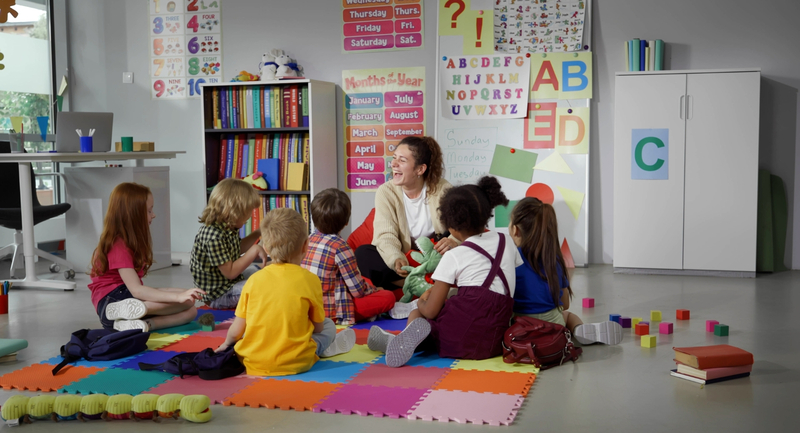It's easy to cheat these days in high school, with students linked to mobile technology and slackers looking for novel ways to cut corners. One student texts a friend with answers for next period's exam while another e-mails pictures of test questions. At home, online research for a term paper gets short-circuited when the student copies and pastes large sections of the narrative to complete the assignment.
Age-old cheating schemes remain popular as well—from cribbing answers from a friend in class to recycling an older sister's term paper on Romeo and Juliet.
But teachers and school administrators are intervening, devising new strategies to foil the plagiarists while teaching citation rules and developing classroom cultures that promote academic integrity.
Creating a Culture of Integrity
Cost-free policies to deter cheating are still the go-to, such as changing seating assignments on test day so that cheaters can't copy answers from a friend or requiring students to hand in their cell phones during an exam. Some districts invest in deterrence with online originality-check sites that weed out papers bought from online term paper mills or even detect a sister's analysis of Shakespearean love.
Other teachers make assignments that require students to incorporate their personal views or information from classroom discussions, which makes copying less likely.
The best approach, say some experts, is to build a culture of academic integrity within your school. This means expanding the curriculum to include lessons on ethical and moral issues, with frank discussions about honesty.
David Wangaard, executive director of The School for Ethical Education, a nonprofit based in Milford, Conn., uses a four-step model to create a culture of integrity in secondary schools. His model features convening a student-teacher Academic Integrity Committee; conducting a school survey about cheating; developing a plan to address core values such as respect, trust, and responsibility; and integrating these concepts into classroom curriculum.
"We need to encourage an ethical citizenry," says Wangaard. "Too many students are copying homework, plagiarizing off the Internet, and connecting with someone on an exam. I'm surprised that people are oblivious to the reality that [cheating] actually exists within their school."
Has Cheating Become Effortless?
The proliferation of mobile technology and online content that's easy to copy has emboldened students looking to cut corners. So has the pressure to perform well on high-stakes assessments, which shifts the goals of education from learning to high scores, in some cases by any means necessary. Increasing pressure for top grades has led to cheating scandals in some leading academic high schools. In one New York school, 71 students were busted for swapping answers by text message on a state Regents exam. After the scandal broke in 2012, the school newspaper surveyed students and found that 80 percent had cheated at one time in their academic career.
"It's getting easier and easier to cheat," says Adam Pease, principal of Mahopac High School in New York. "Students looking for the benefit of high grades to get into competitive colleges may find they can't do all their work and are looking for shortcuts. But they lose sight of the experience of learning and focus too much on the end result of the grade."
Myriad studies have documented the cheating epidemic. In a 2011 survey of 43,000 students, The Josephson Institute of Ethics found that 59 percent had cheated on a test in the past year, with 34 percent doing so at least three times. Another third of students reported plagiarizing material from the Internet. A 2010 poll by Common Sense Media found that one-third of students had cheated with a mobile device and more than half lifted material without attribution from the Internet. More troubling was the finding that many students didn't think they were cheating.
Finding Answers
Schools are getting serious. Mahopac High, for example, is among about 4,000 U.S. secondary schools—about 15 percent—that subscribe to Turnitin, an online service that analyzes student papers for plagiarism. The service, which costs districts $2.50 per student per year, uses an algorithm to check the paper against its source database to flag potential plagiarism. It also stores the papers that get submitted so that term papers can no longer be passed down through the family. Some of the cheating, however, reflects the practice of repurposing online material, which is becoming increasingly prevalent, says Turnitin Vice President Chris Harrick. Schools can use the service as an instructional tool, says Harrick, because it provides an "originality report," which flags sections that could have been lifted from another source. This gives teachers the chance to work with students who struggle with citation before it escalates to charges of plagiarism.
"In a culture of reuse and sharing, conflicts arise with the tenets of originality," Harrick says. "We don't want our service to be used as a 'gotcha.' We want [students] to learn from our originality report. No one wins if it gets into the area of academic misconduct, which can become a nightmare for students, parents, and administrators."
Teaching moral values like honesty and integrity were long part of high school teacher Hal Urban's lessons at San Carlos High School in California. He'd get the discussion rolling by asking a series of questions about honesty and dishonesty, which made students think about being on the receiving end of a lie, how uncomfortable they felt about getting caught, and the repercussions they could suffer if found out.
"It was always the most painful unit I taught because I had to overcome [their] mind-set that cheating was OK because everyone did it or that it was only wrong if you got caught," he says. "I never claimed to have completely changed the culture, but you have to plant the seed. You need to be proactive."
On the first day of class each year, Lori Hodin, a psychology teacher at Lincoln-Sudbury Regional High School in the suburbs of Boston, Mass., likes to tell her students a story from her alma mater, Cornell, of the high-honors student destined for a prestigious law school who was expelled for his involvement in a cheating scheme. She teaches about Stanford Psychologist Carol Dweck's growth model of learning, in which the brain is seen as a muscle that gets stronger when it is used.
"I tell [students] that when their backs are up against the wall, and they have a really challenging opportunity, that is when the most growth happens," Hodin says. "It might be an easier choice to go online and cut and paste to get a better grade, and you probably wouldn't get caught. But if you choose to cheat, you are cheating yourself out of growth opportunities."
Lincoln-Sudbury does have consequences for those who get caught. On the first offense of plagiarism or cheating, students receive an F on the assignment and a call to their parents, which can focus the minds of motivated students. A second offense lowers the student's report card by at least one full letter grade and results in a parent conference. If they get caught a third time, the student fails the class.
With Hodin's students, a deterrent that resonates just as deeply is what she calls a student's legacy. "We get so many cultural messages about winning at any cost and wanting it all really fast," she says. "We emphasize the long-term benefits of developing a work ethic and good character. You build your character out of your choices."
Ten Questions About Honesty and Integrity
In his book, Lessons from the Classroom: 20 Things Good Teachers Do, long-time high school teacher Hal Urban shares 10 questions he asks students about living an honest life. After students jot down their initial thoughts, Urban opens a discussion about the consequences of honesty and dishonesty and its larger role in society.
If you bought any product, from a car to a blender, would you want the salesperson to be honest with you?
If you owned a business, would you want your employees to be honest in dealing with customers and in submitting expense accounts?
If you were riding in a cab, would you want the driver to take the most direct route and charge you fairly?
If you lost your wallet, along with cash, driver's license, and credit cards, would you want the person who found it to return it to you fully intact?
If you invested some of your hard-earned money, would you want the financial adviser to be completely up-front with you about the costs and risks?
If you were married or in a serious relationship, would you want your loved one to be honest with you?
If you were competing in an athletic event, would you want the officials and your opponents to conduct themselves honorably?
If you're an employee, do you want your work and achievements to be evaluated fairly, honestly, and on their merits?
If you bought a product with your credit card over the phone or Internet, would you want the person handling the transaction to honor your privacy and security?
If you were a recording artist or studio owner, would you want people to buy your music in a legal and honest manner?
Source: From Lessons from the Classroom: 20 Things Good Teachers Do, by H. Urban, 2008, Great Lessons Press, www.halurban.com. Copyright 2008 by Great Lessons Press. Reprinted with permission.








